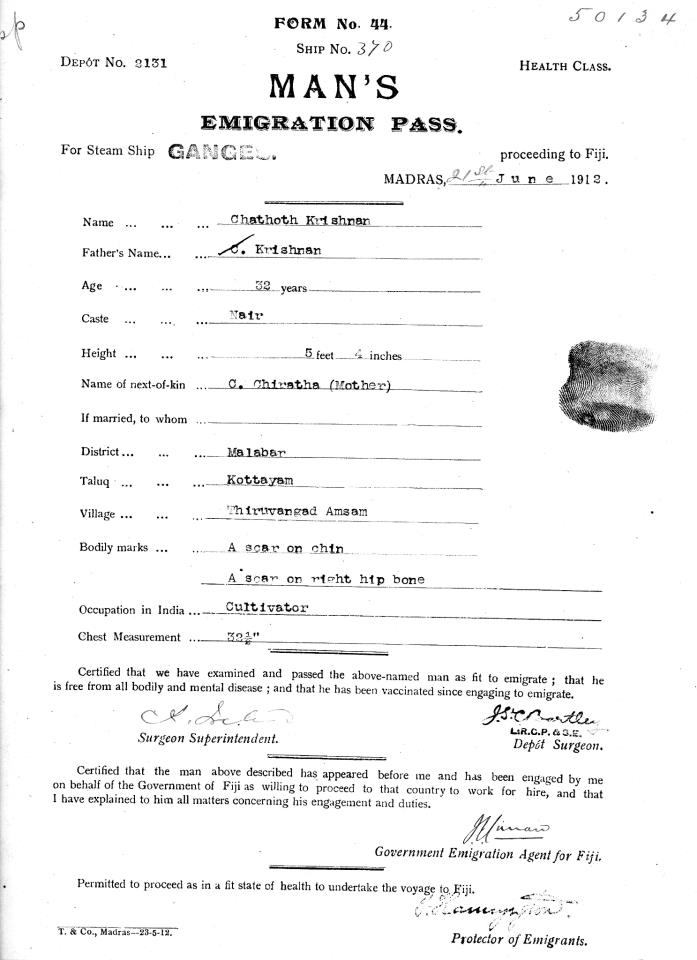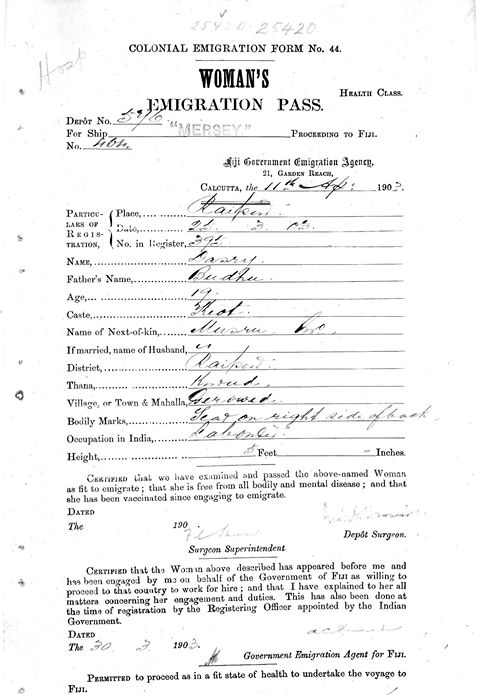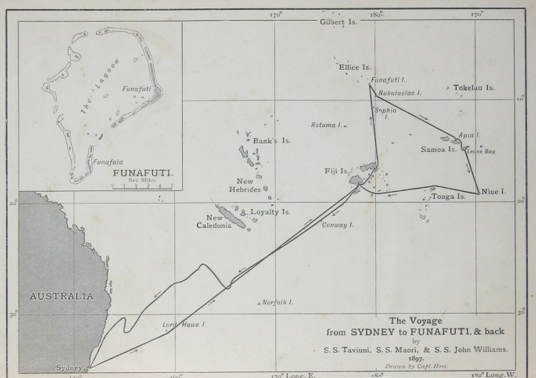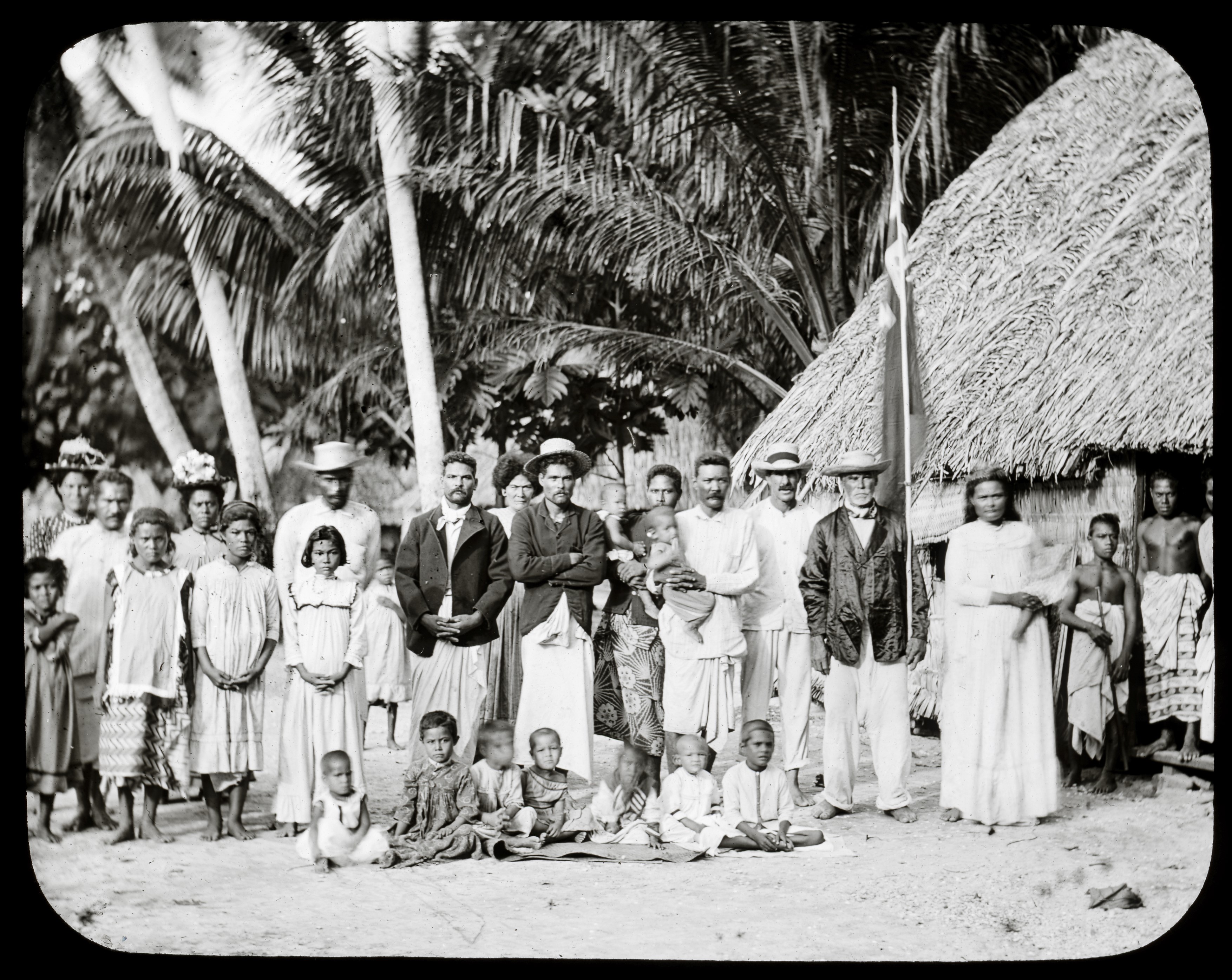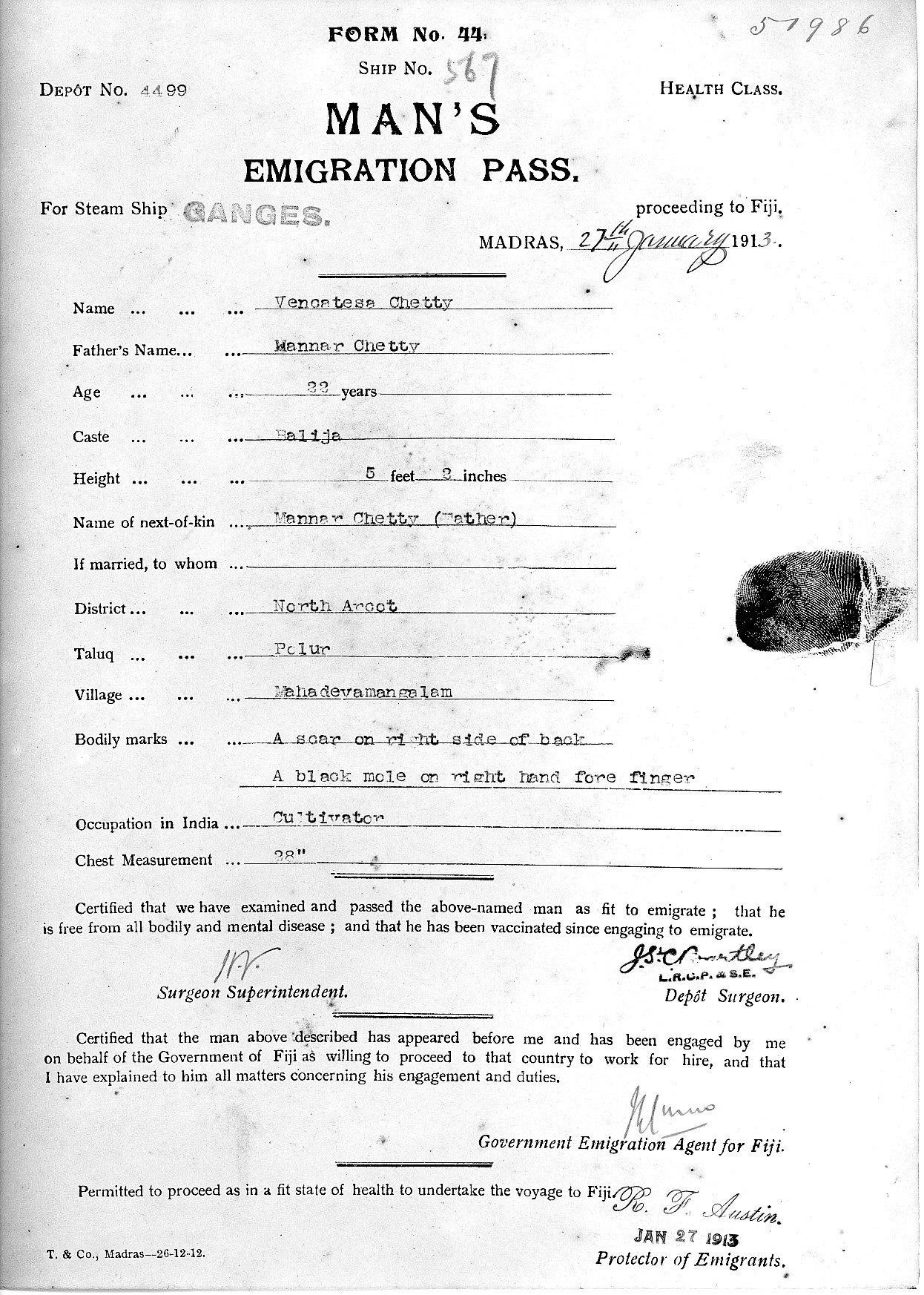
Funafuti: The Edgeworth David 1897 Expedition Documents
Australia - 1. University of Sydney Archives, 2. Macleay Collections at Chau Chak Wing Museum, University of Sydney, 3. National Library of Australia, 4. State Library of New South Wales, 5. Australian Museum Archives
Story
This joint nomination by Australia and Tuvalu concerns an historically significant scientific expedition to Funafuti Atoll in the Ellice Islands (now Tuvalu) in 1897, by a team led by Australian geologist, Tannatt William Edgeworth David. The expedition, which followed a previous expedition in 1896, investigated Charles Darwin’s theory of the formation of coral atolls seven years after his death. Darwin observed during the Beagle voyage in the late 1830s that atolls were formed by the subsidence of oceanic volcanic islands, along with the upward growth of reef-constructing coral formation. This expedition was unique in its ability to assess and prove Darwin’s hypothesis in a short period of time. The records, including manuscript items, photograph albums and lantern slides, provide two different viewpoints of the expedition. Firstly, the scientific expedition records created by David and his team and the Report of the Coral Reef Committee of the Royal Society form an important baseline for understanding the impacts of climate change in Tuvalu, the Pacific, and worldwide. Secondly, writings by Caroline Edgeworth David describe her experiences in Funafuti and her interactions with its people. The contemporary relevance of the documents for the study of climate change with its imminent impact on Tuvalu, and the documentation of the lives of the ancestors of today’s Tuvaluans are of historical and social and community significance.
Images
Location
Information
- Registration Year:
2024
- Related Repositories
- Australian Museum Archives
- Chau Chak Wing Museum, University of Sydney
- National Library of Australia
- State Library of New South Wales
- Tuvalu National Library and Archives, Tuvalu
- University of Sydney Archives
- Download
- Nomination Form

